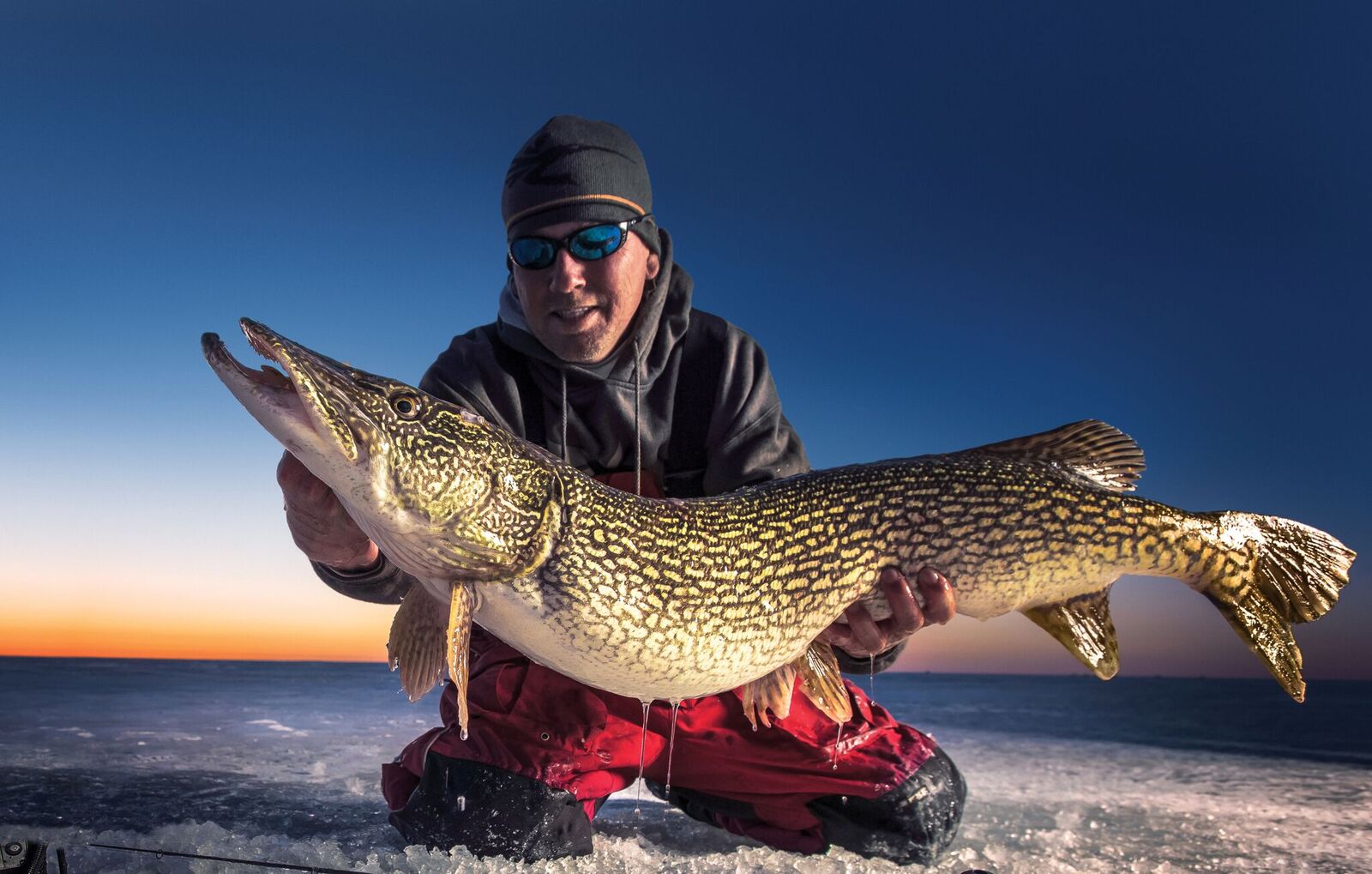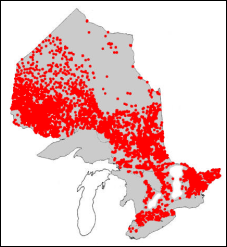
What it looks like
- very large, elongated body
- dark green to brown body with light, yellowish or white spots
- dark back fades to creamy white belly
- fully scaled cheek and partially scaled gill cover
- 10 pores on underside of lower jaw
- tips of tail fin more rounded than muskellunge
Size
- length: 45-75 centimetres (18-30 inches)
- weight: 0.9-4.3 kilograms (2-9.5 pounds)
- Ontario record: 19.1 kilograms (42.1 pounds)
Similar fish
How to tell the difference between northern pike and muskellunge
Where it is found

Range
- widely distributed throughout most of the province
- not historically found in parts of central Ontario but gradually expanding into these areas
- use Fish ON-Line, an interactive mapping tool, to find specific lakes and rivers
Habitat
- vegetated bays, creek mouths and shoals of lakes where they can ambush prey
- find deep water in the summer to avoid higher water temperatures, except in northern areas
Angling tips
- aggressive feeders – can be caught year-round
- bite all day, but morning and evening, when baitfish activity peaks, are best fishing times
- medium-action rod and reel cover most situations
- use strong leaders to prevent the pike's sharp teeth from biting through the line
- take almost any live or artificial bait, including very large streamer flies
Common baits
- spoons, in-line spinners
- crankbaits, spinnerbaits, buzzbaits
- topwater lures
- live baits, including large chubs, suckers and shiners


 1572 Victoria St N.
1572 Victoria St N.

















